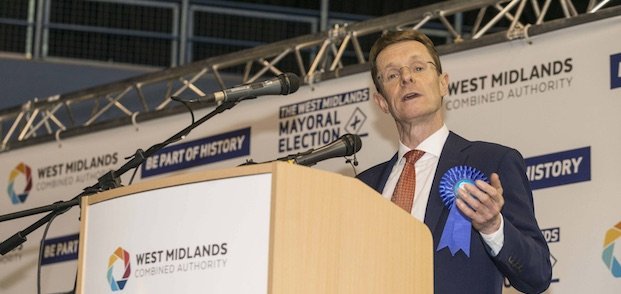
West Midlands Combined Authority (WMCA) will create a commission to identify ways it can generate its own revenue.
The commission—which mirrors a similar body created in London—is aimed at making better use of existing powers and finding innovative new ways of financing infrastructure and housing.
Tony Travers, who previously chaired the London Finance Commission, is among those who have agreed to serve on the commission.
Andy Street, elected as mayor of the West Midlands earlier this year, said the city region has become too dependent on direct funding from government.
He said: “Of course, our relationship with government is vital and we need their support to give us a strong economy.
“But in the longer term, we need to become less reliant on government, stand on our own two feet and begin to control our own destiny and, at the same time, move on the devolution agenda in this country.”
Street said that the commission might consider land value capture mechanisms, as well as public sector pension fund investment.
Earlier this year, Birmingham City Council leader John Clancy launched a £45m “Brummie Bond” to raise cash for new housing.
Clancy, along with Street, has announced ambitious plans on raising finance and expressed support for the commission.
Clancy told Room151: “I am encouraged by the move to establish a West Midlands Finance Commission which will investigate ways to find new sources of funding for local government. This has never been more urgent against a backdrop of continuing austerity and a broken government overwhelmed by Brexit negotiations.” He added that Birmingham is exploring further bond issues.
Other members of the commission will include Isabel Dedring, global transport leader at Arup and former deputy London Mayor for Transport; former Birmingham City Council chief executive Stephen Hughes and Louise Bennet, chief executive of Coventry & Warwickshire Chamber of Commerce.
WMCA is not currently releasing any more details of membership, beyond saying the commission will be made up of 15-20 experts with expertise across local government and finance.
Plans for the new commission were approved at a WMCA board meeting last week. Board papers said that the commission will produce a formal report, or series of smaller reports “summarising the funding streams to be prioritised and the key actions required to deliver such funding”. Discussions have been held with accountancy firm PwC about providing support to the project team at an estimated cost of £50,000.
Initial findings by the commission are expected by the end of 2017.
Setting up the commission fulfils a promise made by Street in his mayoral election manifesto. He said: “I’m really pleased that we’ve managed to get the right people involved in this and I am hopeful we can have some firm proposals on the table to discuss with government by the end of the year.
“Ultimately, in order to achieve what we want to for our region—to fund the projects and make the investments we need to become the UK’s powerhouse—we need to be ahead of the curve and this work will enable us to do just that.”











